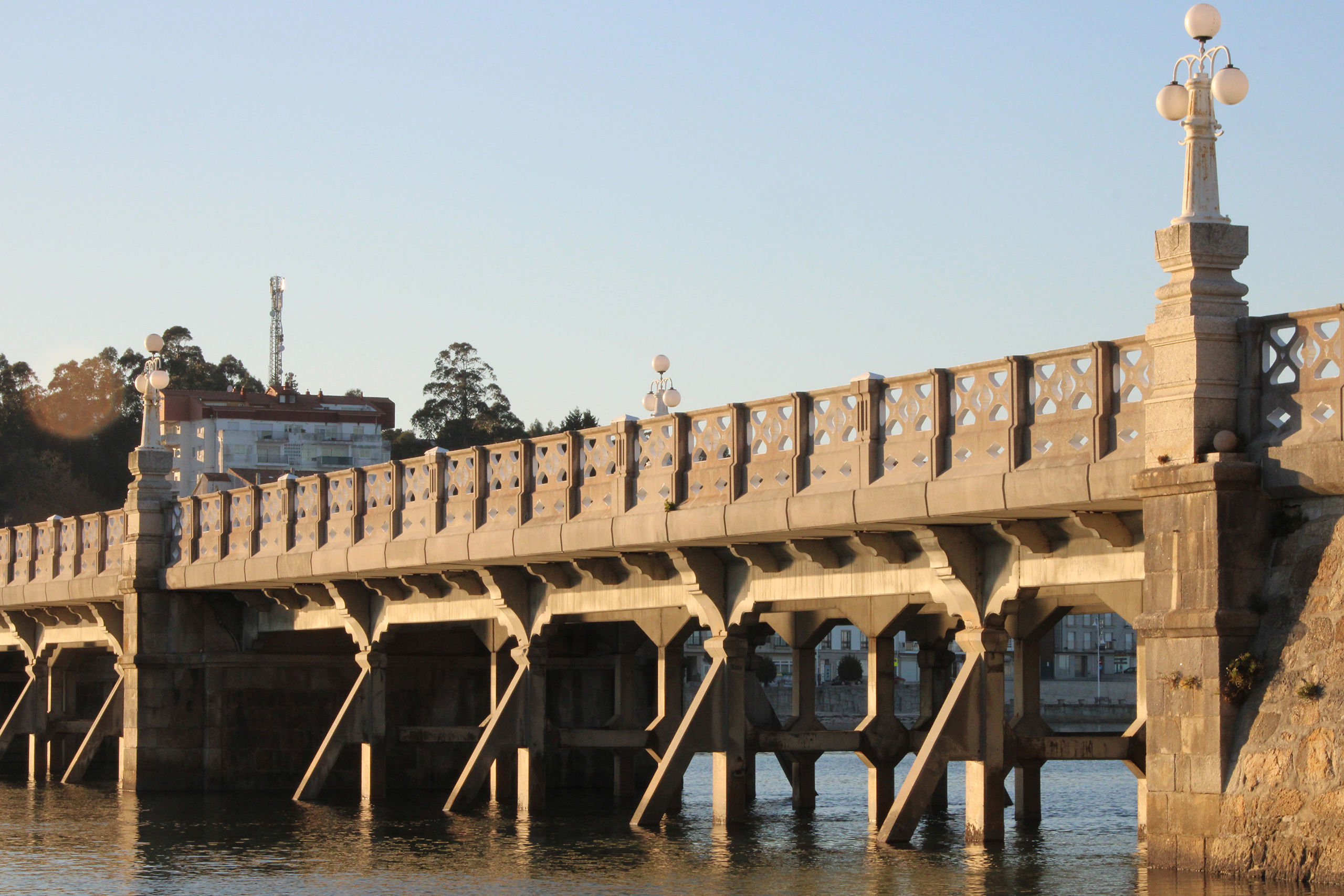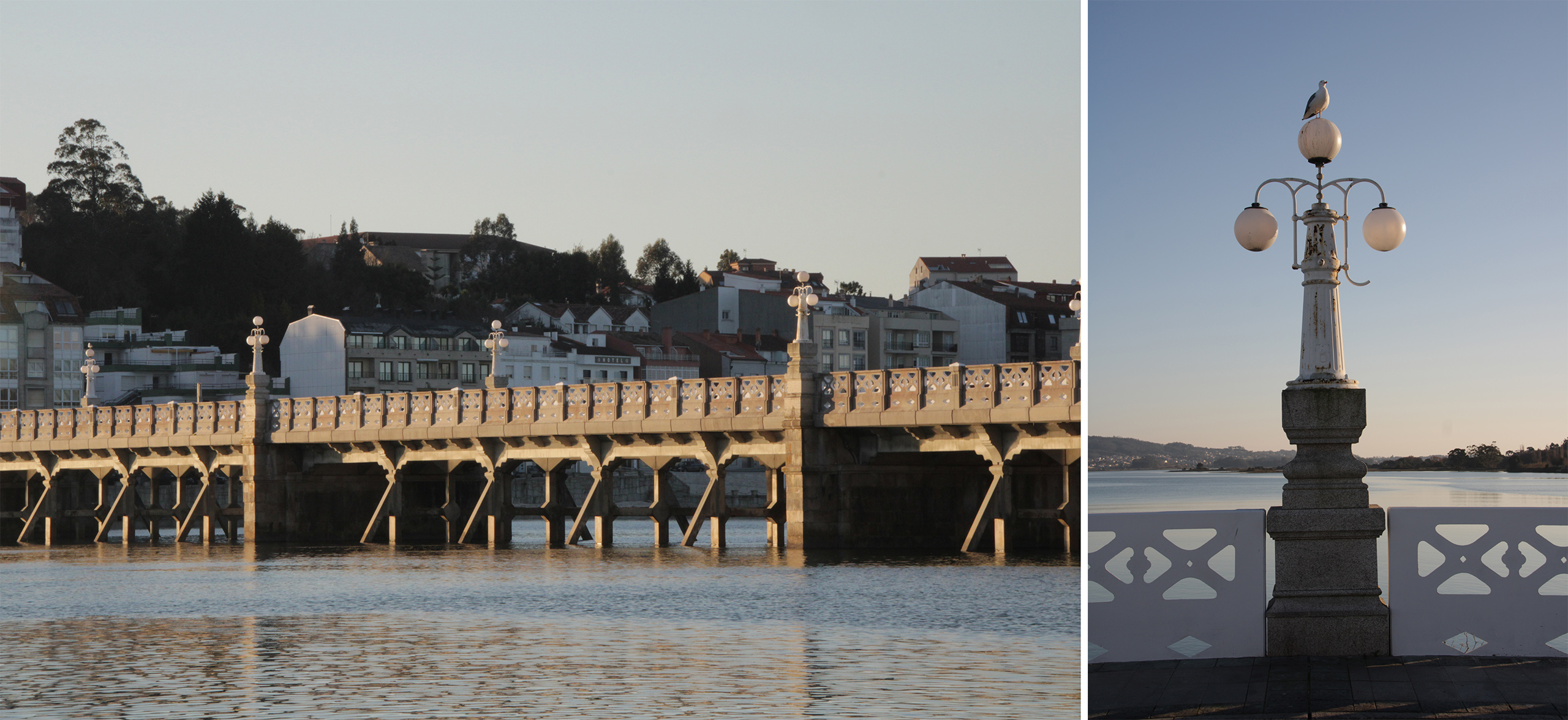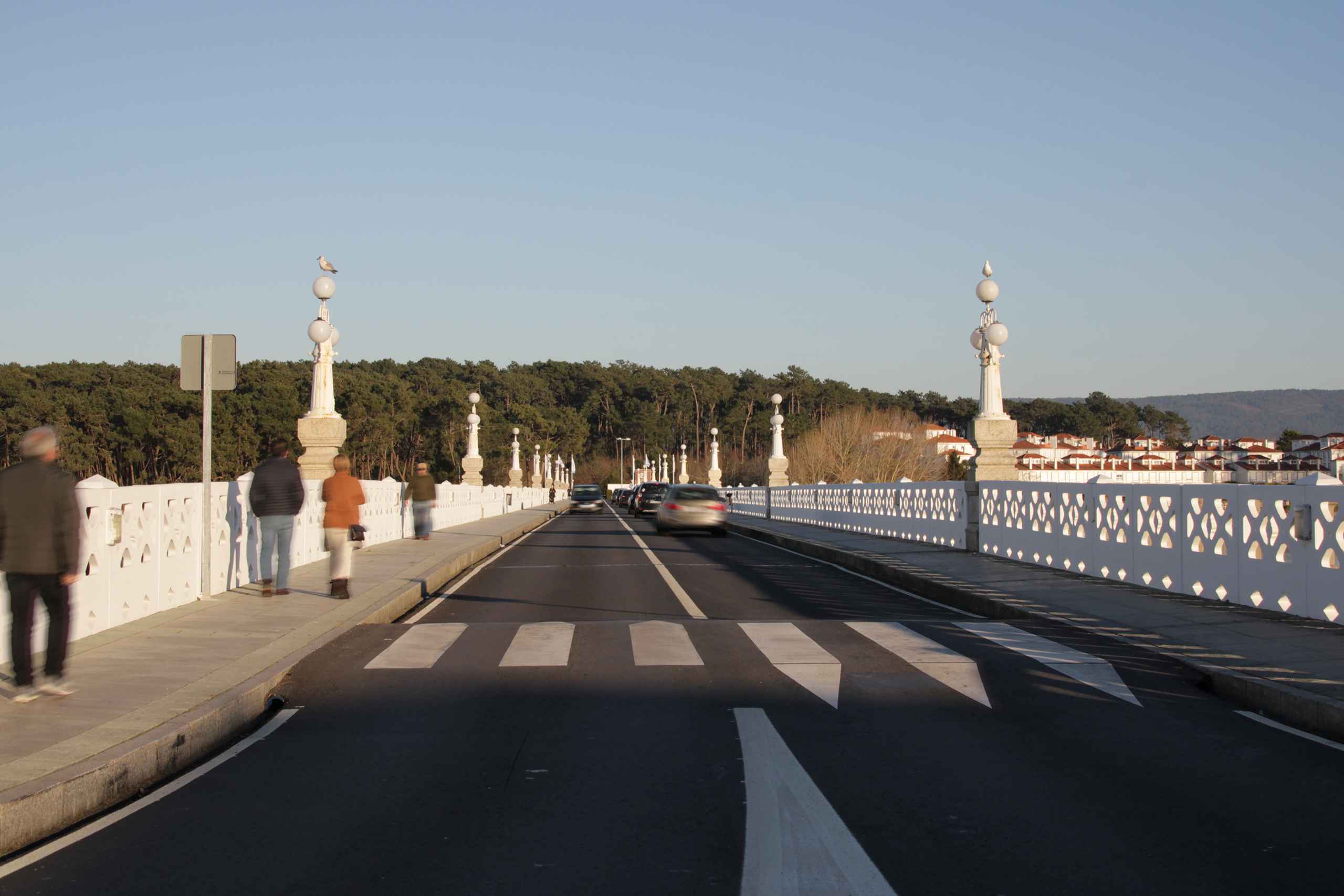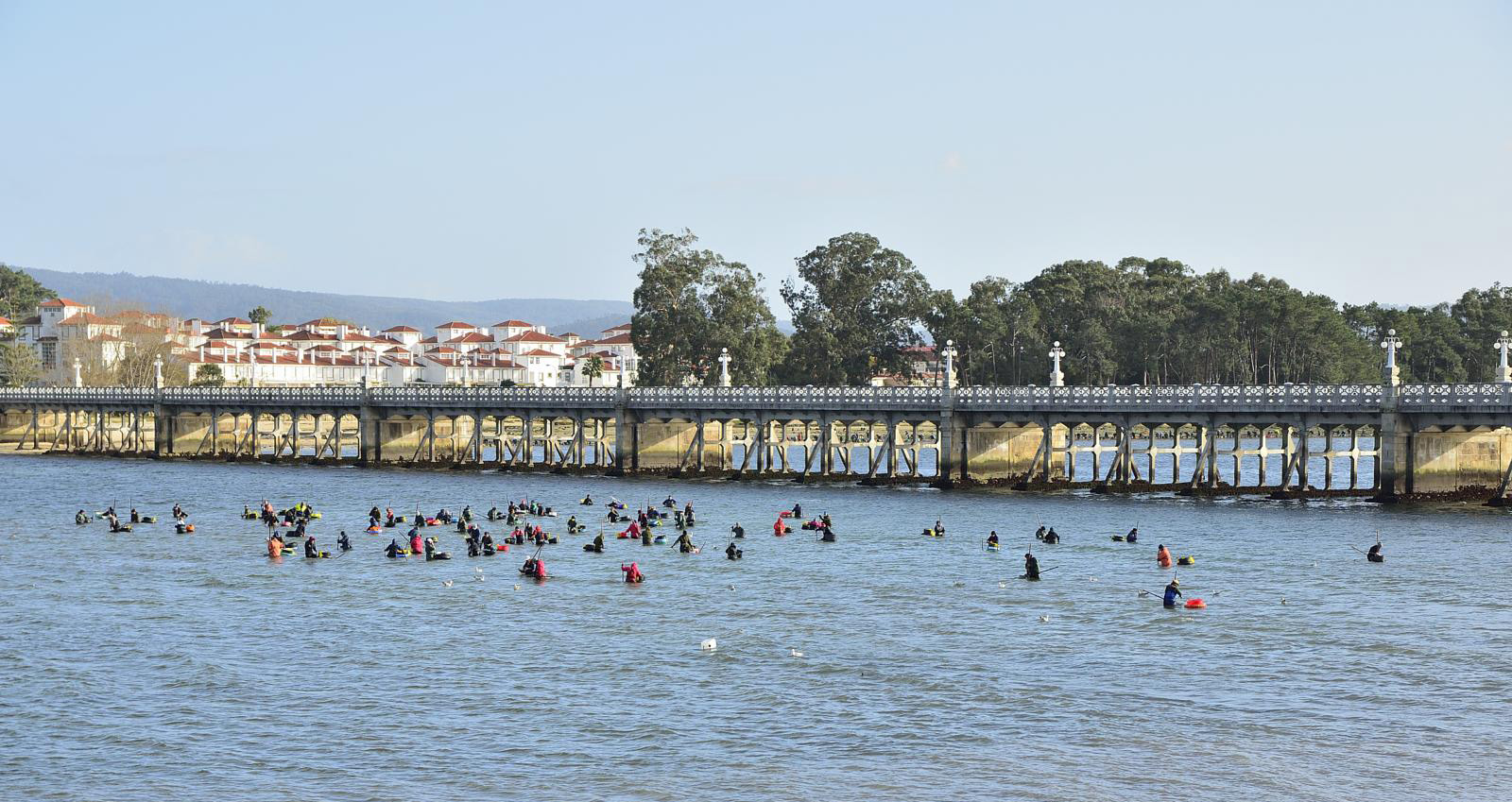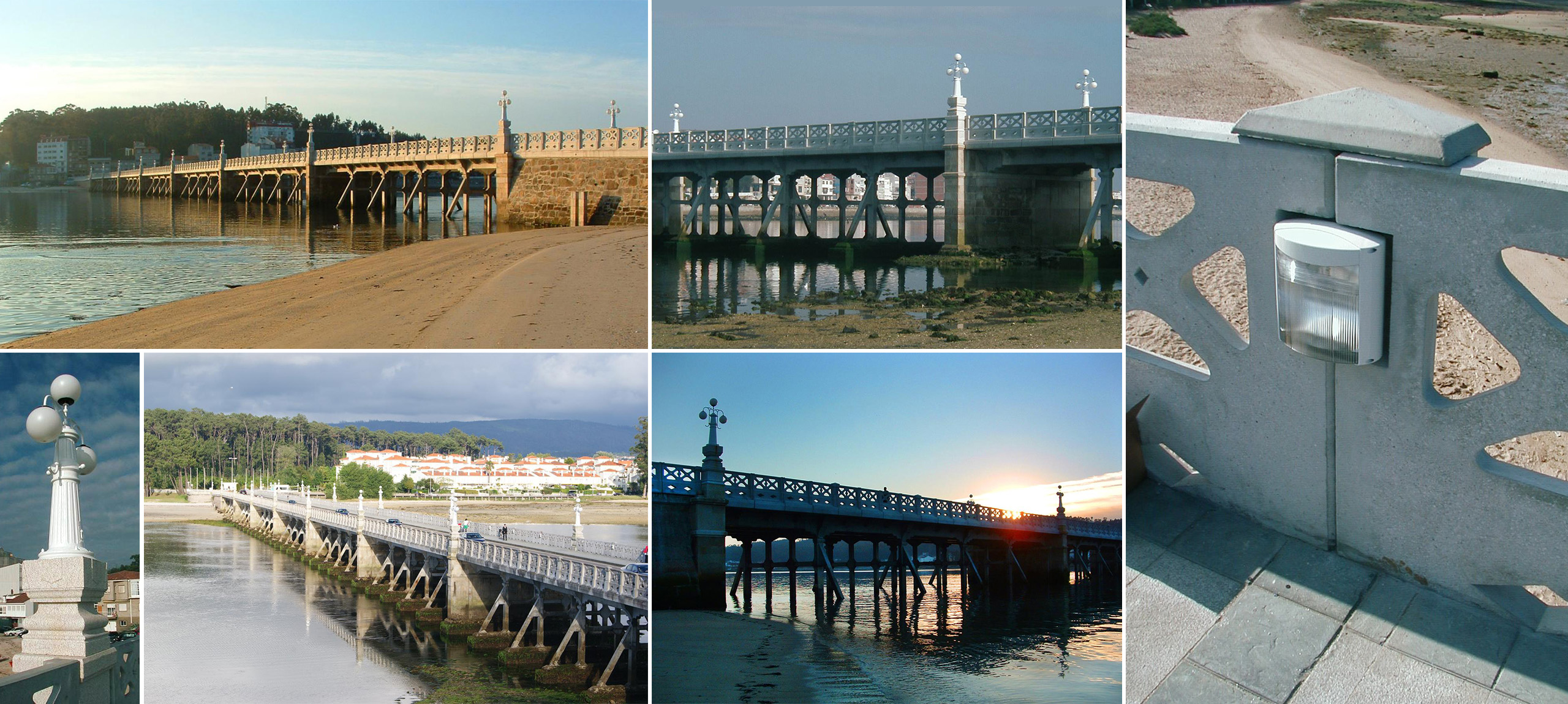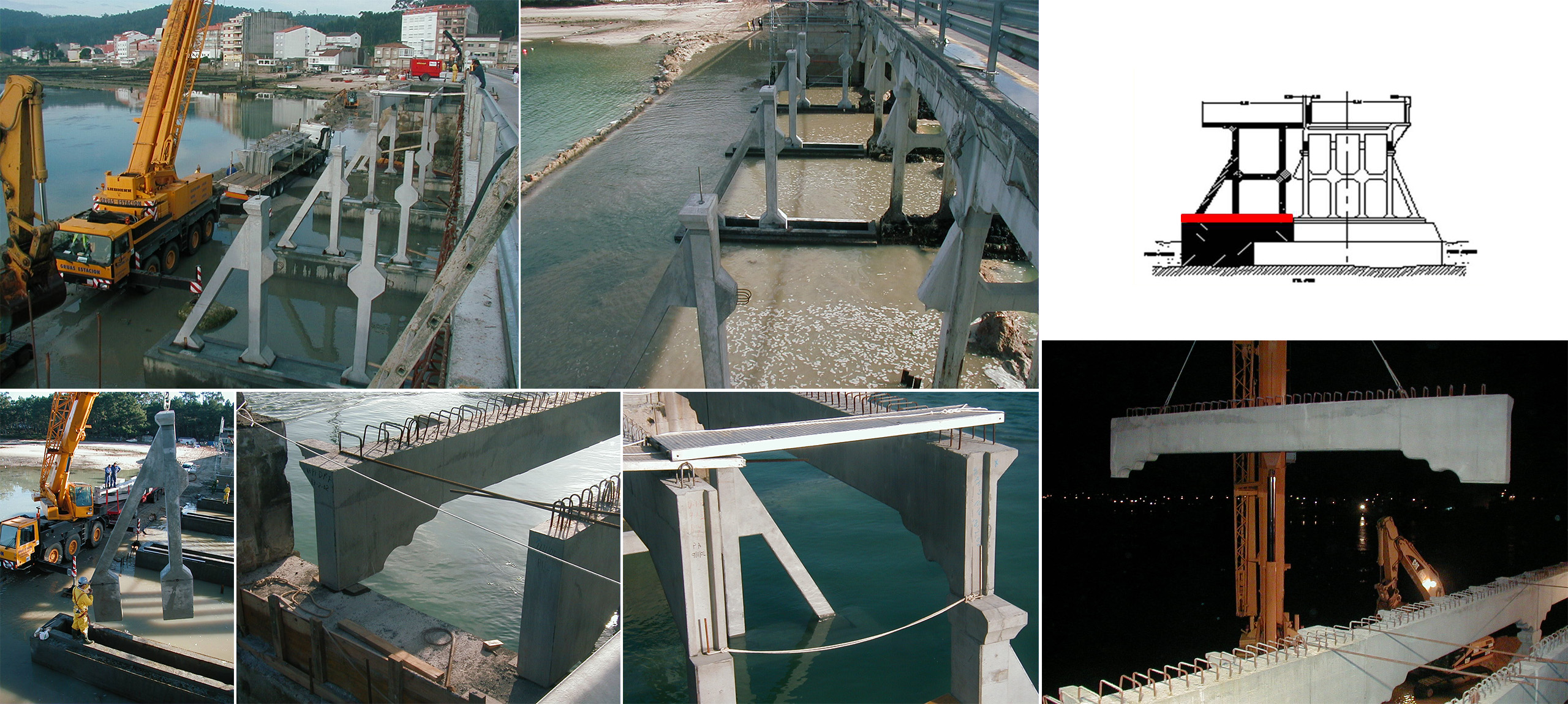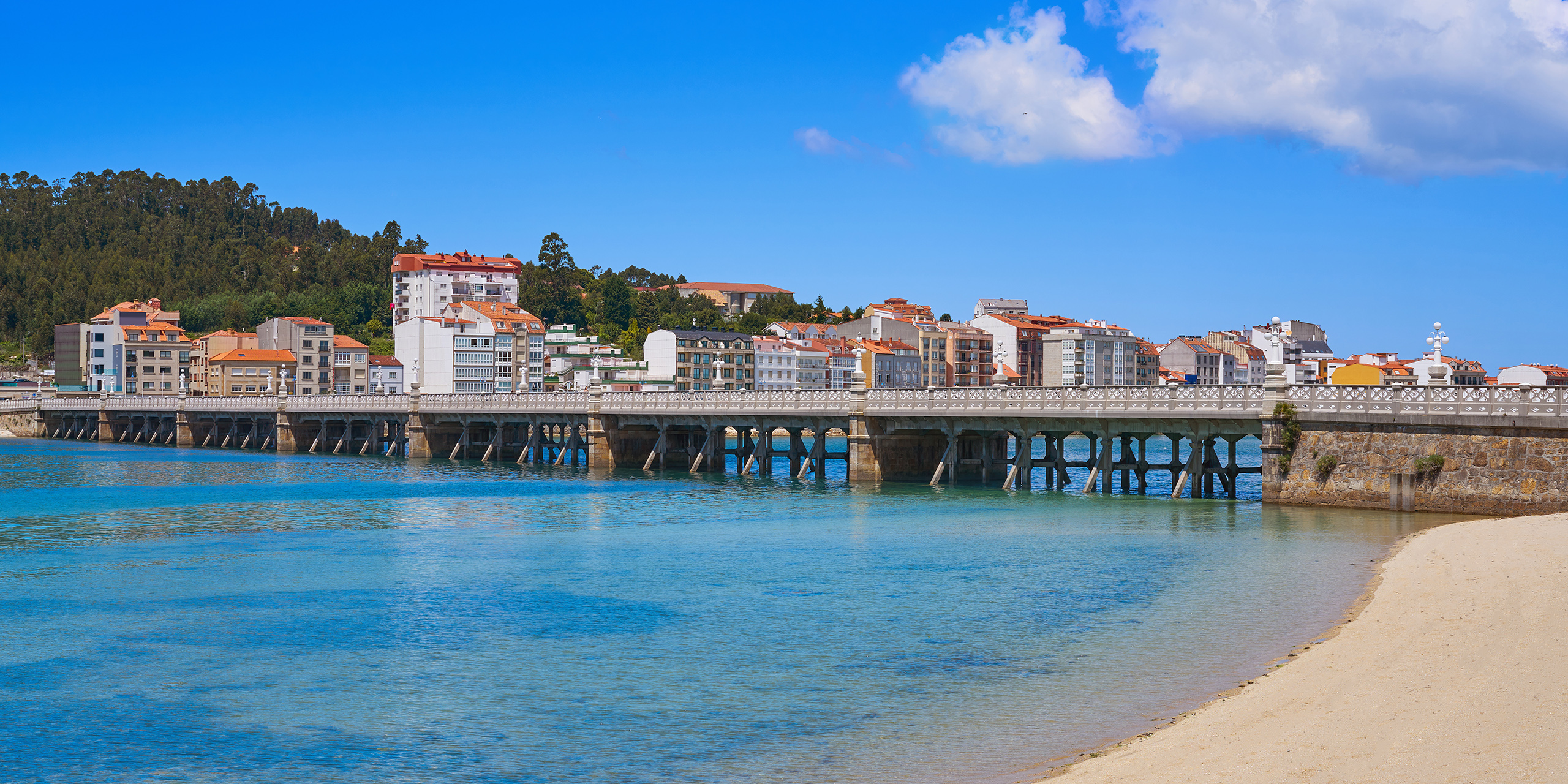
| La Toja Bridge rehabiiltation | |
| Toja Island, Pontevedra, Spain | |
| Structural typology | Rehabilitation Of Bridges |
| Date | Oktober, 2002 |
| Umfang | Rehabilitation detailed design and technical assistance |
| Construction | Vias y Construciones |
| Owner | Xunta de Galicia |
The new La Toja Bridge replaces a bridge which was completed in 1915 and which was one of the first reinforced concrete bridges in Spain. Its substitution became inevitable due to increasing problems of durability that had been affecting the structure from the beginning.
The new construction maintains the original shapes and proportions, but increases the width of the deck from 6.00m to 10.50m. The adopted solution has been designed to assure a theoretical durability over an approximate period of 85 years, according to calculations. Thus, the concrete elements cast in-situ, in direct contact with the sea, are made of mass concrete, while the reinforced concrete ones have been pre-cast in order to control the conditions of the concrete, the placement of reinforcements and coverings, and the execution process.
The construction process was very complex as the new bridge is located in exactly the same place as the old one and there is no other way of reaching the Isle of La Toja. The first step that was taken was the widening of the bridge, so that a part of the old bridge could be kept open to traffic. Afterwards, the traffic was diverted to the new widened part of the bridge; the old bridge was demolished and the remaining transversal section was subsequently built in place.
The new construction maintains the original shapes and proportions, but increases the width of the deck from 6.00m to 10.50m. The adopted solution has been designed to assure a theoretical durability over an approximate period of 85 years, according to calculations. Thus, the concrete elements cast in-situ, in direct contact with the sea, are made of mass concrete, while the reinforced concrete ones have been pre-cast in order to control the conditions of the concrete, the placement of reinforcements and coverings, and the execution process.
The construction process was very complex as the new bridge is located in exactly the same place as the old one and there is no other way of reaching the Isle of La Toja. The first step that was taken was the widening of the bridge, so that a part of the old bridge could be kept open to traffic. Afterwards, the traffic was diverted to the new widened part of the bridge; the old bridge was demolished and the remaining transversal section was subsequently built in place.


